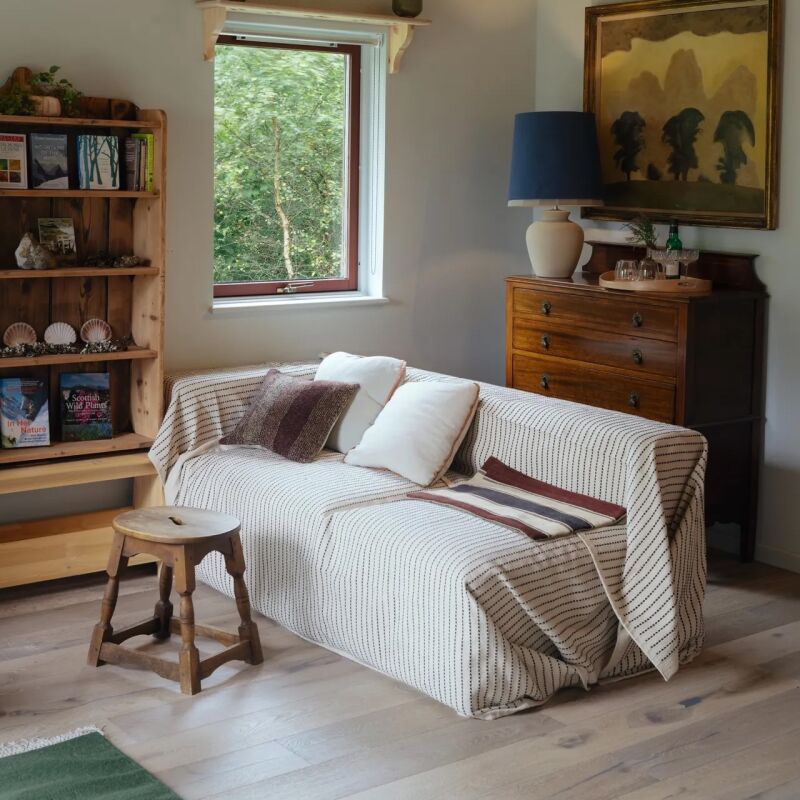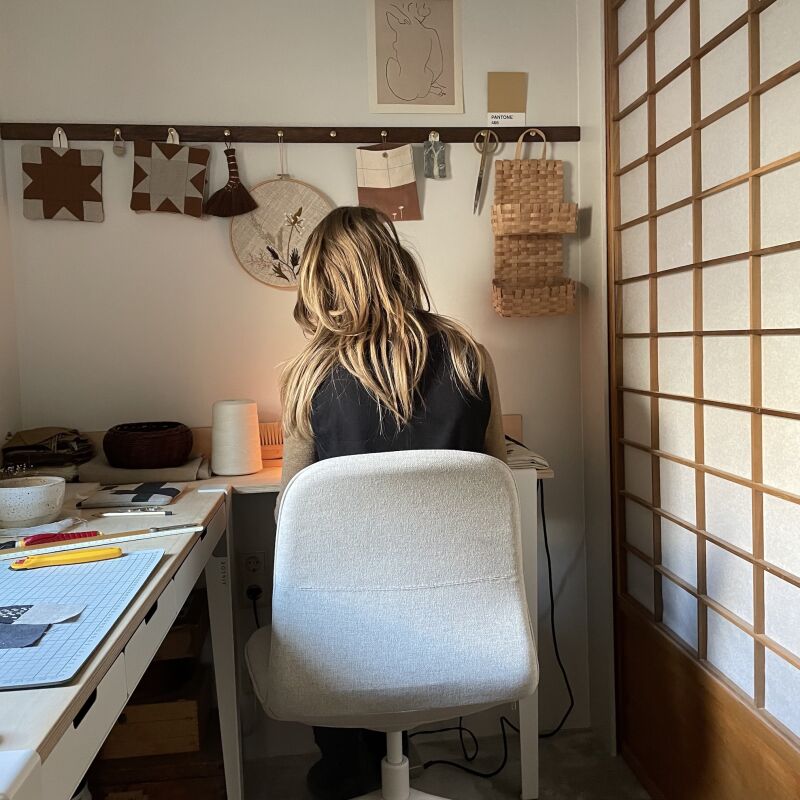As a native Cape Codder, I’ve always been fond of seaweed. So when I ran across designer Karen Robertson‘s pressed seaweed DIY on Garden Design, I had to give it a try.

Above: Any project that starts with “Step 1: Head to the beach,” is going to be A-OK with me. Here I employed my little helpers, Oliver and Solvi, to assist in finding seaweed specimens. We carried them home in a bucket of clean seawater.
Materials
• Seaweed
• Bucket of seawater
• 140 lb. watercolor paper
• Cardboard sized to cover your paper
• Weed cloth or other mesh fabric sized to cover your paper
• A medium-size artist’s paintbrush
•Two pieces of wood sized to cover your paper
• Something heavy, such as books, to use as weights

INSTRUCTIONS
Step 1: Gather your specimens and then place them in your sink or a bucket filled with clean seawater.

Step 2: Fill another bucket with two inches of water. (Instead, I used the other half of my double sink.) Then slide a piece of watercolor paper into the tub and arrange the seaweed on top, keeping both paper and seaweed submerged.

Step 3: Carefully lift the paper out of the water, tilting it this way and that so the water drains away but you still maintain your design (more or less). Using a small brush, reposition the seaweed into the desired composition and brush away any unwanted bits of seaweed and sand.

Step 4: Carefully place your arrangement on a piece of corrugated cardboard and gently place a piece of mesh fabric on top. You can layer several prints this way.

Step 5: Place your stack of prints between the two flat boards and put something heavy on top, such as a brick or your Introduction to World Art books. Wait several days, depending on the relative dryness of your climate. A fan also helps.

Step 6: After several days, remove the weights and layers to reveal your prints. (If they’re not fully dry, it’s fine to put them back under the weight.) Using Google, I looked up the names of my specimens and wrote them in pencil.
The Results

Above: Two framed prints now grace my mantel. The most delicate specimens and simple compositions turned out to be my favorites.

Above: After trying this project, I have one note to add to Karen’s tutorial: More translucent and delicate seaweeds make better (and less messy) prints.
Intrigued by Justine’s mantel? Tour her family cottage in our post The Soulful Side of Old Cape Cod. For two more projects that are fun to do with kids, see her DIY Leaf Prints on Gardenista and her Homemade Bayberry Candles.
N.B.: This post is an update; the original story ran on June 13, 2013, as part of our Nautical Notes issue.




Have a Question or Comment About This Post?
Join the conversation (7)